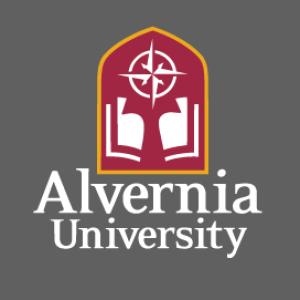

From Aristotle to Descartes to Nietzsche, the great philosophers have contributed to the way we think, believe and view the world. Studying philosophy builds knowledge and skills that can be applied in nearly every endeavor. Students become adept at problem solving, and acquire the ability to express thoughts and communicate effectively. Students learn the art of effective argumentation and improve their research and writing skills. In short, students acquire abilities that will serve them well for the rest of their lives.
The abilities students develop in this major set them apart and make them valuable to employers. In addition, exploring and wrestling with questions that have occupied humankind since its beginning are rewarding endeavors. Earning a philosophy degree at ÃÄÄïÖ±²¥ can also prepare students for graduate school, including law school. ÃÄÄïÖ±²¥ graduates have pursued advanced degrees at institutions such as Villanova University and Temple University.
Through a rolling admission process, prospective undergraduate students — including first-year, transfer, and international students — may apply via the or . To learn more about how to complete your application, please visit our application page.
There are options to assist in financing your education and making the tuition affordable. Visit our Student Financial Services page for a detailed overview of the process, including a link to complete the FAFSA application, as well as more information about tuition, the tuition payment plan and the tuition deferment program we offer. ÃÄÄïÖ±²¥â€™s Title IV code for the FAFSA is 003233. The Office of Student Financial Services is available to help with any questions you may have. Call 610-796-8201 or email sfs@alvernia.edu.

All ÃÄÄïÖ±²¥ students must successfully complete a minimum of 123 semester credits to receive a Bachelor of Arts or a Bachelor of Science degree. You’ll need to complete 54-56 liberal arts core credits and complete community service hours. In addition, Philosophy majors must complete 33 credits in the major.
Paths of Knowledge may count towards minor or Related Requirements, but not Mid-Level Arts Exploration requirements. Choose one path.
Three courses, at least two from Liberal Arts disciplines, not the major, at the 200-400 level from the interdisciplinary minors of Women & Gender Studies, Digital Media, Community & Environmental Sustainability, Community Engagement, Cultural Studies, Leadership Studies or Pre-Law.
Three courses, at least two from Liberal Arts disciplines, not the major, at the 200-400 level employing multiple disciplinary perspectives to explore the Enduring Questions in one of the following themes: Cultural & Global Studies, Imagination & Creativity, Peace & Conflict, Poverty & Wealth or Sustainability, Science & Technology.
Three courses at the 200-400 level in one Liberal Arts discipline other than one’s major, guided by common ideas and methods of inquiry. Students choose from Art, Biology, Chemistry, Communication, Computer Science, Economics, English, History, Mathematics, Music, Philosophy, Political Science, Psychology, Sociology, Theology, Theatre or World Languages. This path may be used to give students a firm foundation in a discipline supporting their chosen major, or to pursue an interest in one of the Liberal Arts disciplines.
All ÃÄÄïÖ±²¥ students must successfully complete a minimum of 123 semester credits to receive a Bachelor of Arts or a Bachelor of Science degree. You’ll need to complete 54-56 liberal arts core credits and complete community service hours. In addition, Philosophy majors must complete 33 credits in the major.
After earning the Bachelor of Arts in Philosophy, you can pursue a variety of careers, including:
According to the Bureau of Labor Statistics, careers in philosophy and religion are expected to grow by up to 10 percent between 2022 and 2032, faster than average for all occupations. The median salary in the field is $60,000.
The purpose of the Philosophy Club is to encourage students to discuss, question, and reflect, through philosophical conventions, ideas and current and past events to develop and grow communication and critical thinking skills with peers in the ÃÄÄïÖ±²¥ Community. The Philosophy Club explores different venues through discussions and trips. The advisor, Dr. Janae Sholtz, can be reached by email at janae.sholtz@alvernia.edu by telephone at 610-568-1488.
Alvernia students have an opportunity to earn college credit by spending a semester or summer in Washington, D.C. where they serve as interns in a congressional office, government agency, major corporation, newspaper or news network, or agencies devoted to legal affairs, international relations, or business and economics. They also may intern with one of several non-profit groups dealing with the environment, women’s issues, the arts, education, science, or labor relations among others. Participants are customarily juniors or seniors who have achieved grade point averages of 2.5 or better and who have the endorsement of the appropriate academic area. In addition to their internship, students select one seminar dealing with the arts and humanities, communication, public policy, the legal system, business, and government. Interested students should see their academic advisor.
For more information about ÃÄÄïÖ±²¥â€™s Philosophy program, contact the Admissions Office at 610-796-8269 or admissions@alvernia.edu. Or reach out directly to program director Janae Sholtz at 610-568-1488 or janae.sholtz@alvernia.edu.



